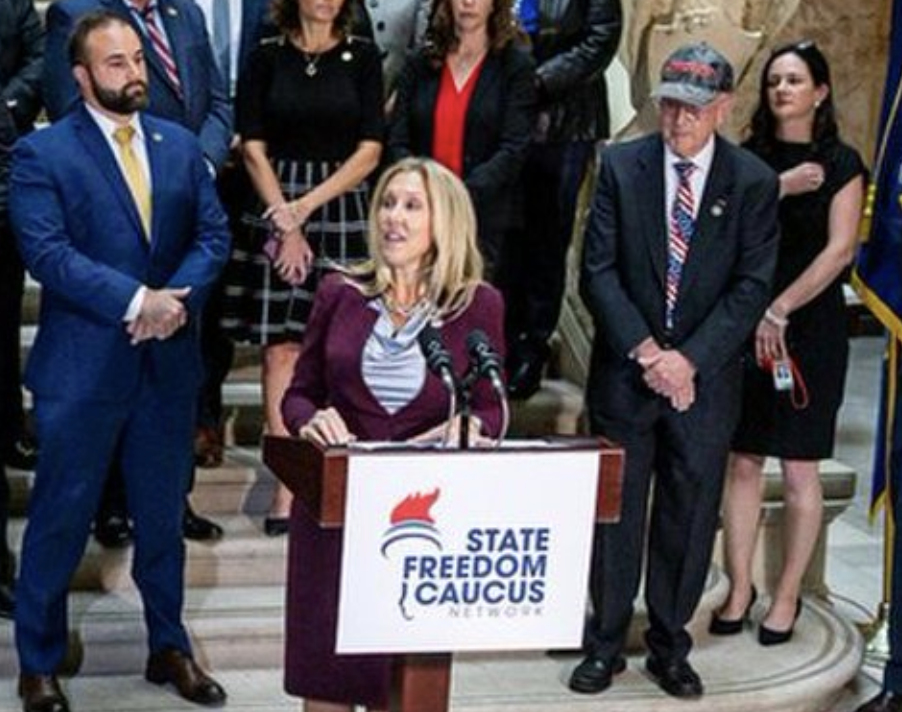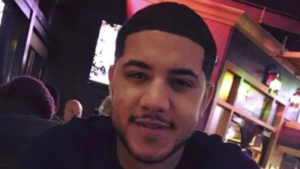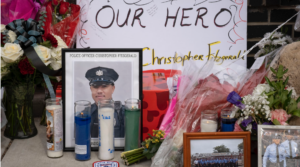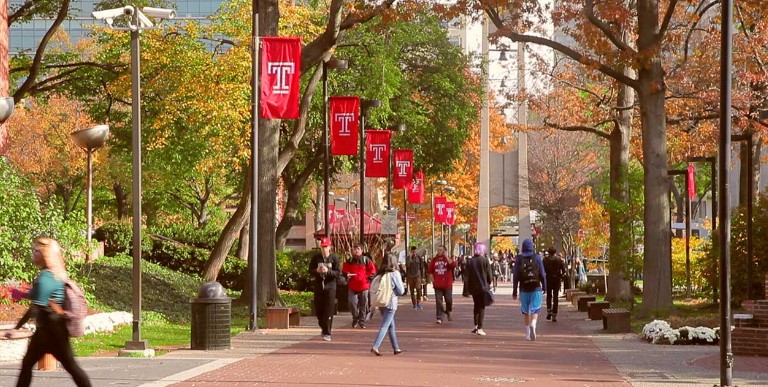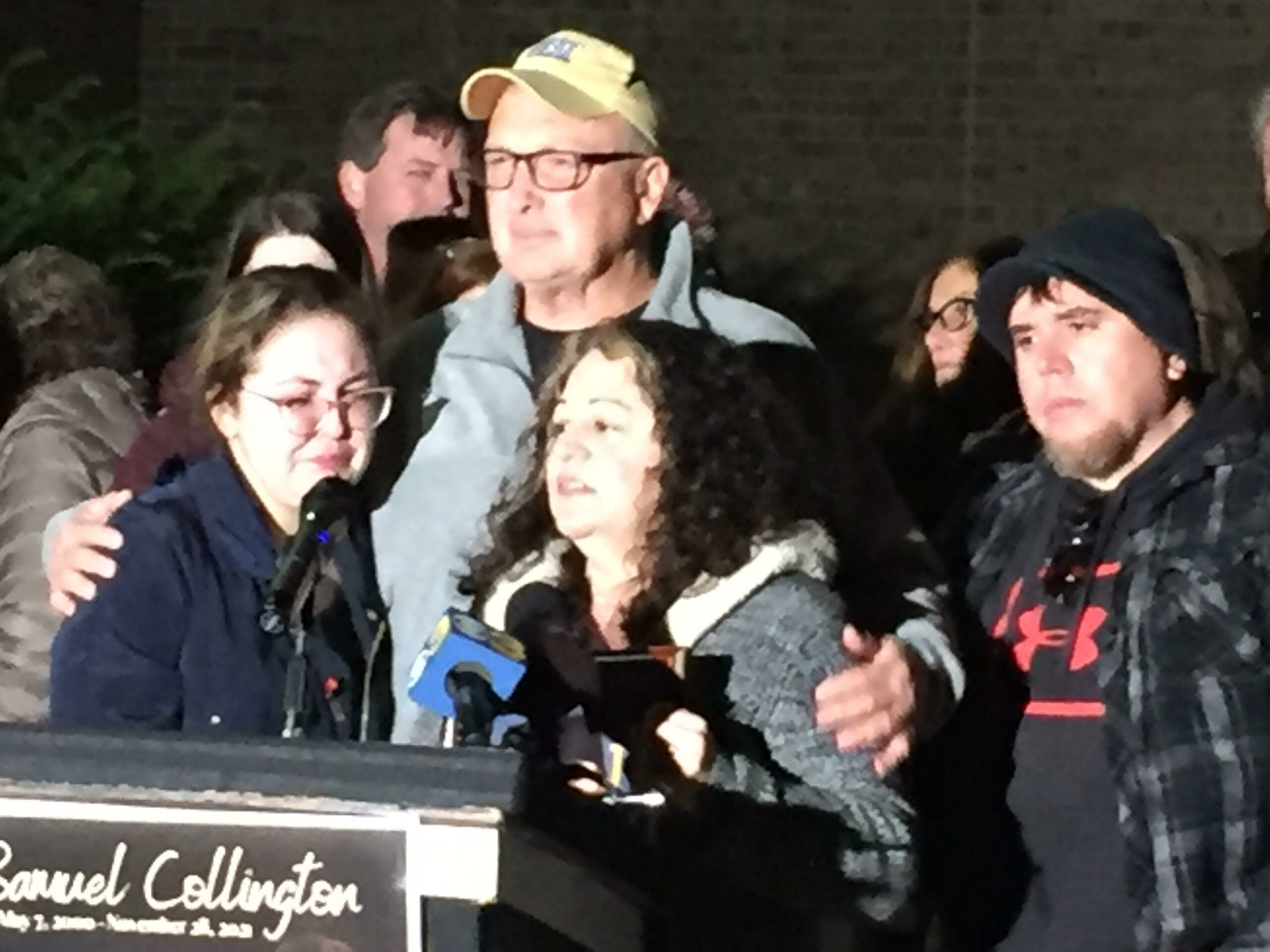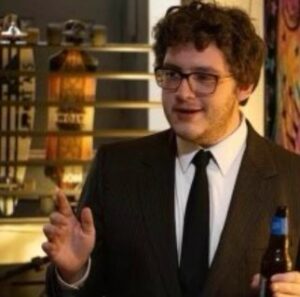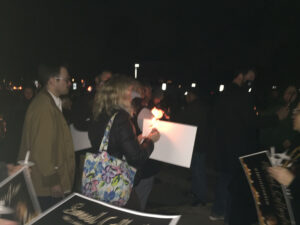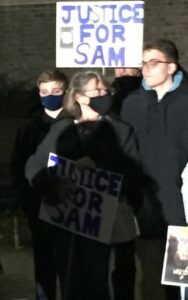Trump Touts McCormick, Courts Black Voters at Philadelphia Rally
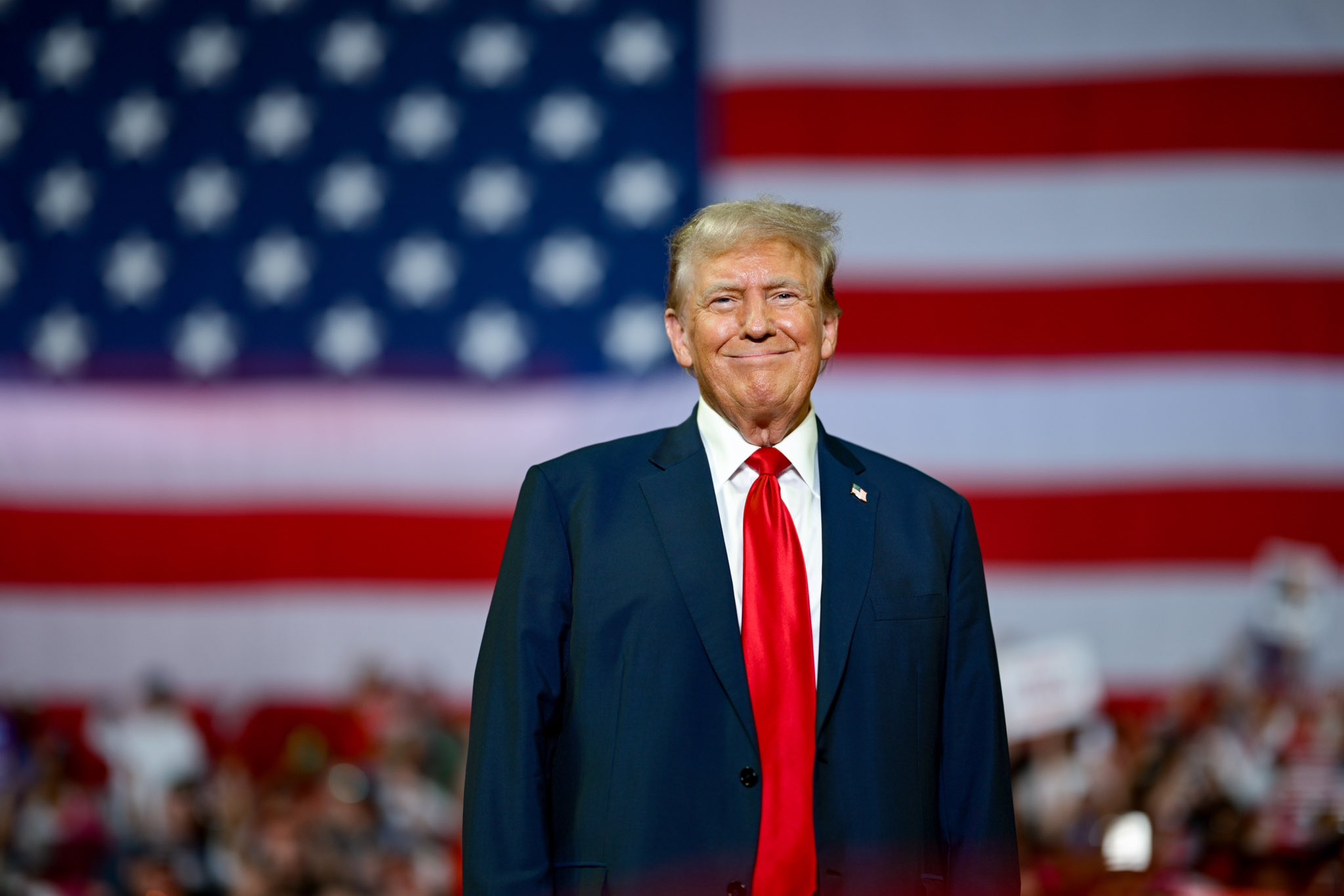
There was a bit of a bromance between former President Donald Trump and Senate candidate Dave McCormick at Trump’s rally in Philadelphia on Saturday.
Trump endorsed McCormick as “a warrior, a great military person, an incredible guy. And we have to elect him as the U.S. senator from your state. And just so you know, Dave McCormick is a seventh-generation Pennsylvanian who grew up in Bloomsburg, went to West Point, did great there and earned a Bronze Star for his service.”
“Dave went on to an outstanding career in business and now is fighting for the people of this commonwealth. He loves this commonwealth. He really is a high-quality person. I actually said, ‘Dave, are you too high quality for this job?’”
“But I’d rather have that than the other. And honestly, the other senator has been here forever…I don’t think I ever met him in my years in Washington. He doesn’t do anything,” Trump said. “Dave will vote to secure your borders, stand up to China, and unleash incredible amounts of Pennsylvania energy. And he wants to stop Biden inflation.”
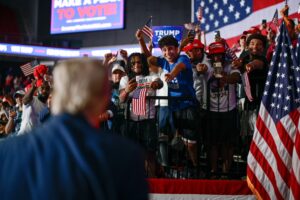
Philadelphia fans welcome former President Donald Trump.
Trump also bashed McCormick’s opponent, Democratic incumbent Sen. Bob Casey Jr.
Trump added, “Bob Casey votes with Sleepy Joe 98 percent (of the time). Bob Casey could have voted to stop Joe Biden’s invasion; instead, he voted in favor of sanctuary cities. He voted to give illegal aliens taxpayer-funded benefits. He voted against the border wall… Pennsylvania, you need to defeat open borders Bob Casey.”
On the stump in the swing state that many political observers believe could determine the outcome of the presidential race, Trump hit two issues hard: illegal immigration and the economy.
Trump recounted recent news stories of attacks by illegal immigrants, like a 13-year-old girl allegedly raped in New York City, a 12-year-old Texas girl allegedly assaulted and murdered by two illegal immigrants, and a Maryland mother of five who was allegedly raped and murdered. In every case, the alleged assailants had previously been released into the U.S. by the Biden administration.
“Joe Biden wants to be president for illegal aliens, but I will be president for law-abiding Americans,” Trump said, while promising to “tear up” the mass amnesty executive order that Biden recently announced. Countries are opening up prisons and mental hospitals and sending inmates to America, he said.
“In Venezuela, crime is down 72 percent,” he said.
Trump also blamed Biden for inflation and said he would bring back prosperity.
“When I left office, inflation was practically nothing. During my term we had gasoline down to $1.87 a gallon. And the 30-year mortgage rate was 2.7 percent. And then Joe Biden blew it to shreds. Biden’s inflation price hikes on energy infrastructure cost the average American family an astounding $28,000.”
“You know, inflation is a disaster,” he said. “It’s a total country buster. And when you look at the prices of eggs and bacon, it’s gone up 100 percent.”
“The monthly cost of a mortgage has gone up under Crooked Joe Biden,” he said. “With me, it was around 2 percent. Now it’s 10 percent, and you can’t get the money.”
“On day one of my administration, we will throw out Bidenomics and replace it with MAGA-nomics,” he said to cheers and applause.
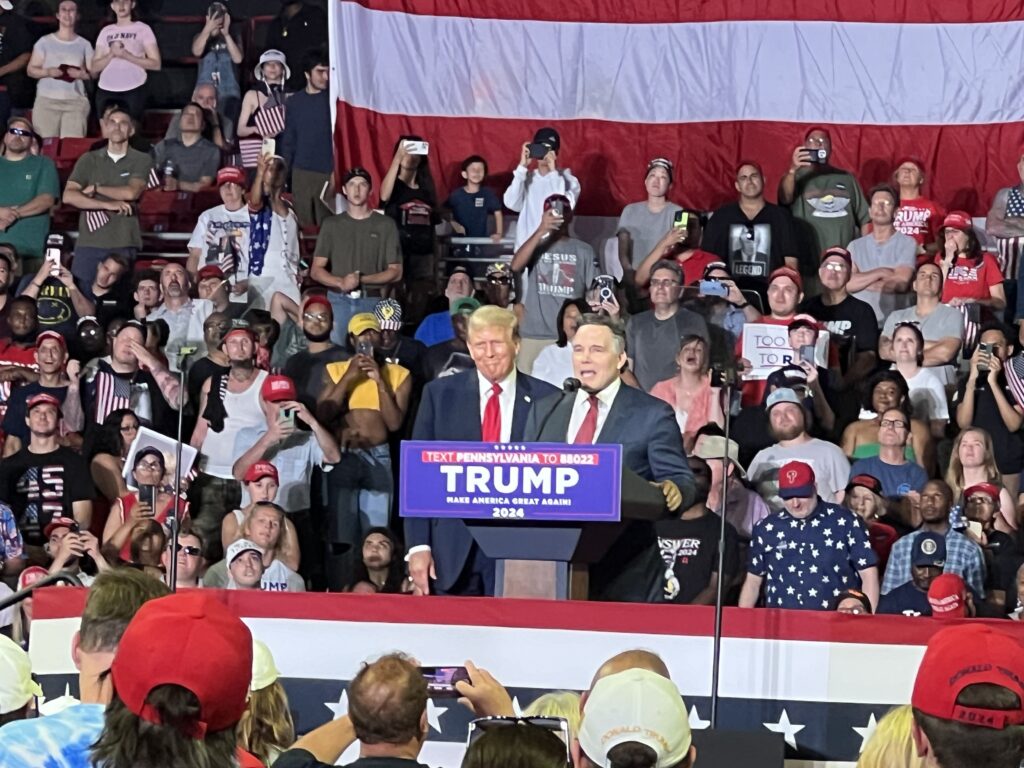
Former President Donald Trump with Senate candidate Dave McCormick
Trump also talked at length about the troubles plaguing Philadelphia, using them to make a pitch for support among Black voters. He specifically called out progressive District Attorney Larry Krasner, saying he has “the blood of countless men and women and children on his hands” for his soft-on-crime policies.
The Trump campaign is making inroads with Black and Hispanic voters, according to recent polling. The rally in a predominantly Black area of Philadelphia, along with endorsements from rap artists and others, is a clear attempt to attract voters who previously voted Democratic.
“The people of our country are looking for hope, whether they are White, Brown, Black or anything else. They’re looking for hope,” Trump told the crowd. “We will also work to lift up Black and Hispanic and other communities in Philadelphia and all across the United States…They’re smart. They want jobs. They want safety. They don’t want to lose their homes.”
Kristina Bowie, a Black Philadelphia resident, attended to support Trump.
“I like his policies,” she said. “I like all he’s trying to do to make America great again.” When Trump was president, “It was just better then.”
But state Rep. Malcolm Kenyatta (D-Philadelphia) said his constituents won’t back the former president.
“I represent the community in Philly where Trump is currently ranting and raving. I can authoritatively say my neighbors aren’t in that arena listening to his lies.”

Doylestown residents Peder Cox and Ellen Bowman Cox. Bowman Cox is leader of the Doylestown Republican Club.
When McCormick took the stage, he also focused his comments on the economy and the need for change.
“As a native of Pennsylvania, it breaks my heart that 60 percent of Pennsylvanians are living paycheck to paycheck. Prices are on the rise 20 percent,” said McCormick. “As a combat veteran, it breaks my heart that we can’t make our recruiting numbers, that our military is in decline and that 22 veterans a day kill themselves. We need new leadership.”
Trump’s appearance drew supporters from across the state.
Phoenixville resident Brooke Spinelli said, “I support Trump (for) a number of reasons. School choice. I want the economy to be where it was.” She brought her father, a gun collector who is concerned about his Second Amendment rights, to the rally.
“I think our country was in better shape when Donald Trump was running it,” said Stephanie McCoy from New Holland, in Lancaster County. “He actually cared about the American people and didn’t have our borders opened up for anyone to come in.”
And while Trump’s message in the past on early voting and mail in ballots was less than clear, he urged the Keystone State crowd to get out and vote, whether early, by mail or in person, and to volunteer “to secure our elections.”
“We don’t want them dumping ballots,” he said. “If we win Pennsylvania, we win the presidency.”

